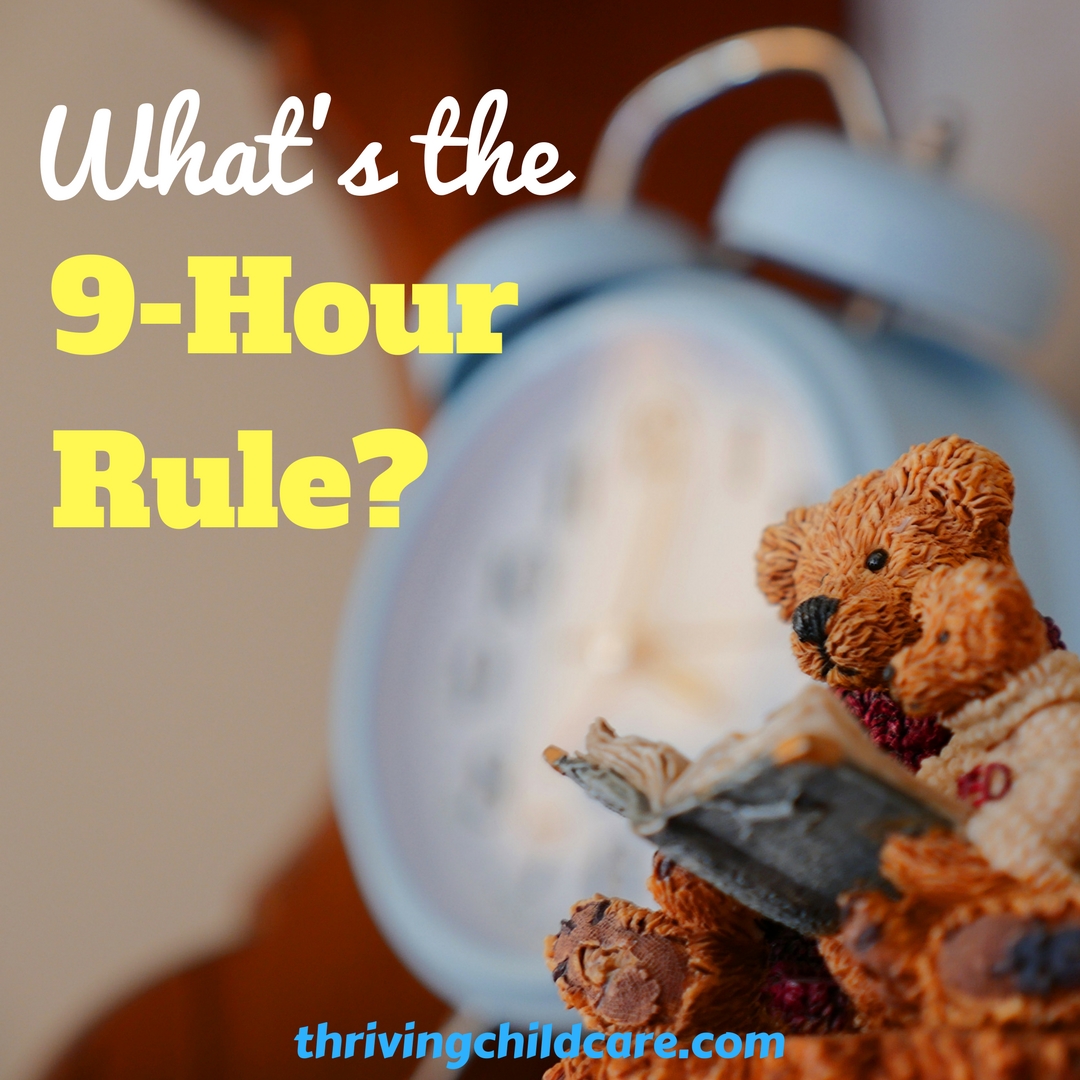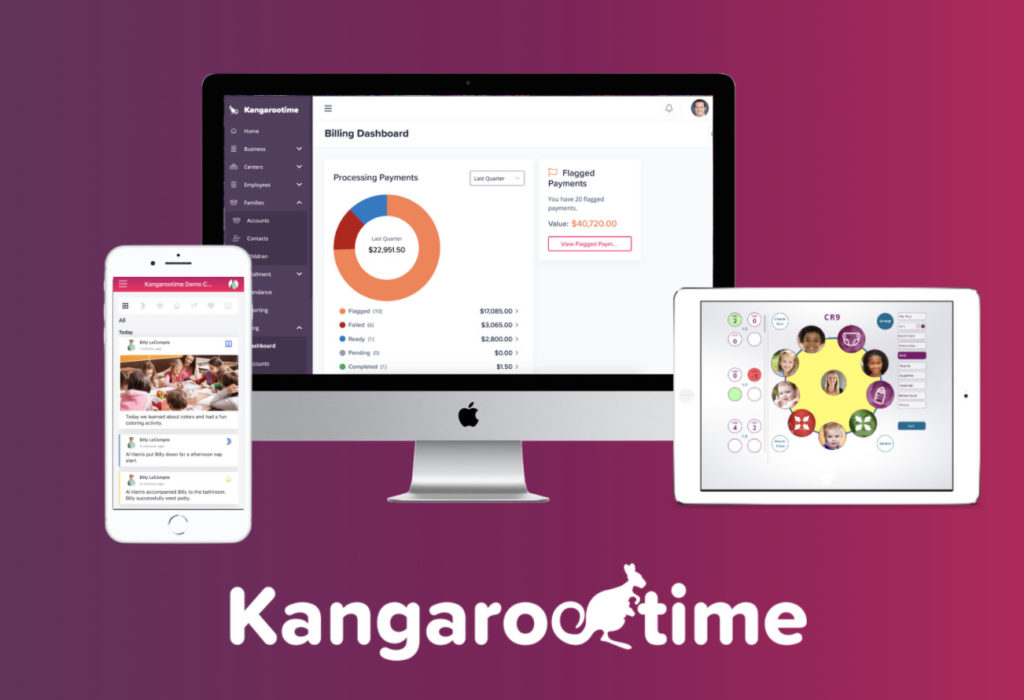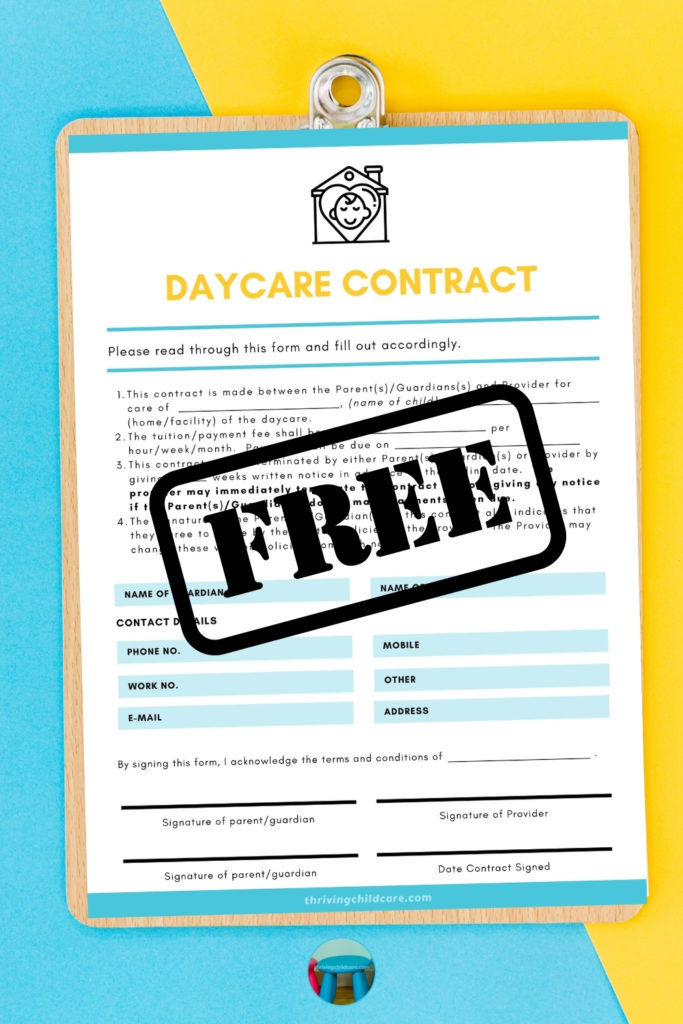I think one of the most significant additions I have made to my childcare contract was what I call the 9-Hour Childcare Rule. It was just one of those additions that I felt necessary after parents seemed to be taking advantage of the daycare hours as opposed to their contracted hours. So today, I thought I would give a little bit of detail as to what the 9-hour rule is, why you might want to adopt and how to enforce it.
The 9-Hour Childcare Rule
What is it?
It’s funny because I thought I came up with this. But it turns out that there are quite a few providers who also use the 9-hour childcare rule as well.
Clients abusing the hours at the childcare
Basically, the 9-hour childcare rule is just that. The basic care covered under the standard tuition is nine hours of daily care. Anything beyond nine hours is considered an extended day, which by the way has an additional fee (more on that in a minute).
Why is it?
So some providers may be asking “Why is the 9-hour childcare rule necessary?”
Over the years I noticed far too many clients abusing the hours at the childcare. Despite the contracted hours that they had requested and we had agreed to, parents would take liberties and extend those hours.
I’m not talking minutes. I’m talking hours!
This may seem a minor issue to some providers, but I would argue that it isn’t. Here’s why –
Breaking Rules
For clients to go against the contract (agreement) they have with a provider is essentially breaking the rules (contract). Typically clients who are willing to break one rule would not have a problem breaking other rules as well.
Extends your Work Day
A few years ago I had a parent who felt that the extra 45 minutes his children were are the childcare every day was no big deal and was “just a little more work”. I explained that actually, it was nearly 4 extra hours weekly more work. Then I asked him whether I deserved to know when my work day would end. Looking a bit embarrassed he agreed that I did.
Operating Hours
Most providers have operating hours that they are licensed for. In my state (California) if I were to extend past those hours, in fact, I would be out of compliance and could be cited and fined. I have had to occasionally explain that to parents too.
For this reason, my business hours are on just about all of my marketing material and indicated in the childcare contract as well.
Out of Ratio
Speaking of being out of compliance; parents not abiding by their agreed to hours of attendance can also put a provider out of ratio. If you have a larger license/enrollment, like I do, it is necessary to ensure that the mandated adult: child ratio is adhered to.
Avoid Burnout
Lastly (but just as important) being able to put a cap on your daily work hours can be a real saving grace and help avoid the dreaded burnout that many providers experience.
Providers need down time
Considering the fact that many providers start early in the morning and end their day well after the normal workday, rest is very necessary. Providers need downtime so that they can face the following day without being overtired.
I have a reminder that states this “We respectfully ask that parents please make any requests, inputs, or inquiries regarding schedule changes, needs, information, etc. during our business hours 7am-6pm, Monday-Friday. That way we can rest up, be fresh and well rested to care for your child on their next day.”
How is it enforced?
There are several ways to reign in the time abusers. Here are a few ways I enforce the 9-hour childcare rule:
- Explain it – During a tour, I am sure to review that the basic daily hours of care include 9-hours and beyond that would be considered an extended day at additional fees.
- Contract – Of course the 9-hour childcare rule is stipulated in the childcare contract. As a matter of fact, it’s highlighted.
- Remind them – I have a habit of sending out regular reminders to parents of this and other core childcare policies.
Still not convinced?
A providers typical 11-hour day amounts to a 55 hour work week
Consider that nine hours is still longer than the normal workday. A provider’s typical 11-hour day (7 a.m – 6 p.m.) amounts to a 55-hour workweek (most people have 40-hour work weeks). In a month, that works out to 220 working hours, compared to 160 hours of a typical worker. And I don’t even want to tell you what that looks like annually.
The point is more than likely you are putting in a lot more time than the average worker. That being said, it is important to realize that all that time can lead to burnout quickly. Especially if you are not getting compensated for it or it is hindering your off-duty life.
Enter the 9-Hour Rule/Policy. This policy can put a boundary between clients taking too many liberties with childcare hours.
Related Reading:
- Setting Your Child Care Hours
- Why Parents Aren’t Following Your Policies
- Is it Time to Terminate? Top Ten Reasons To Let Clients Go













